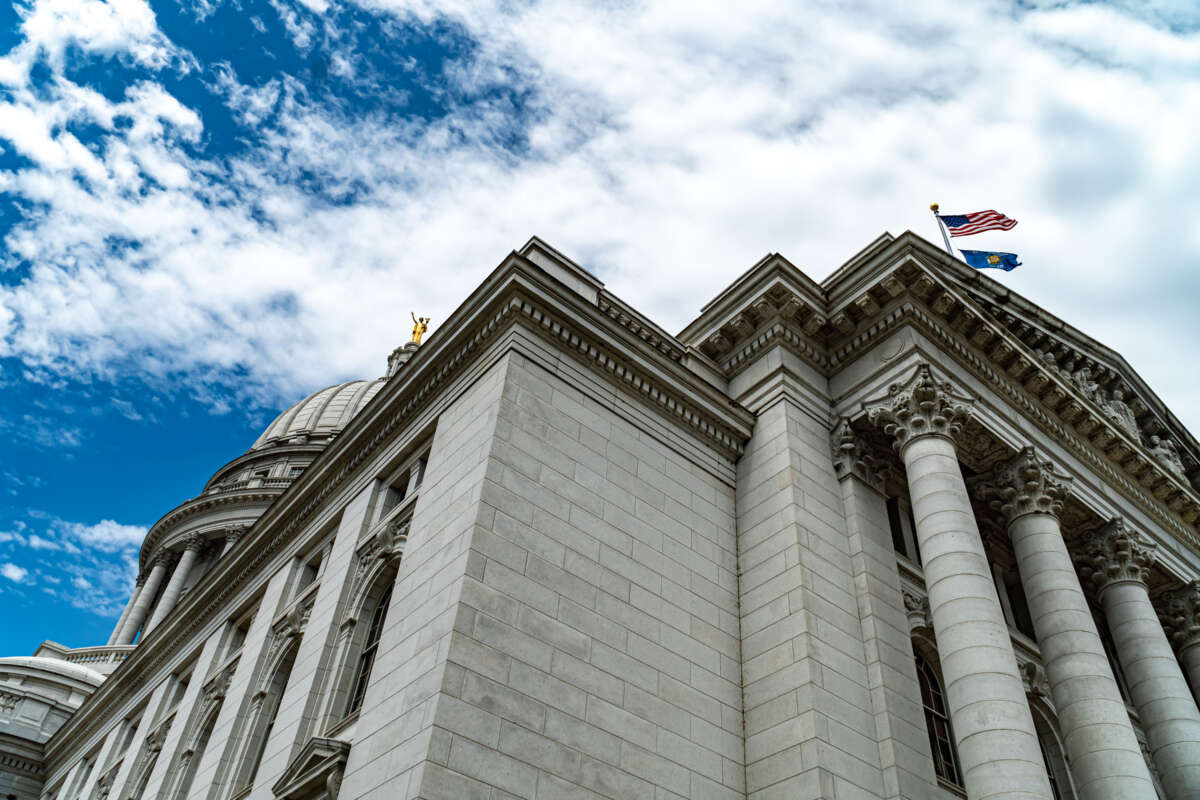A Wisconsin judge has reaffirmed a finding she made about the state’s archaic anti-abortion law, ruling formally on Tuesday that the statute applies only to non-consensual feticide and not to abortion procedures.
After the U.S. Supreme Court ruled to overturn long-established federal abortion rights protections in Dobbs v. Women’s Health in 2022, several states reverted to abortion laws that had previously been on the books, including Wisconsin, whose law regulating the procedure dated back to 1849.
That provision barred abortion beyond the legally ambiguous time of fetal “quickening,” essentially banning the procedure in the state with no exceptions, save for cases in which a pregnant person’s life was at risk. As a result of the Dobbs ruling re-establishing that law, Wisconsin’s abortion clinics shuttered completely, out of fear that providers could face a prison sentence of up to six years.
In July, however, Dane County Circuit Judge Diane Schlipper issued an initial finding in a lawsuit challenging the law, brought forward by Democratic state Attorney General Josh Kaul, interpreting the statute as only applying to non-consensual terminations of pregnancies. Her decision at that time resulted in two Planned Parenthood clinics in Dane and Milwaukee counties reopening, as the clinics were confident they wouldn’t be charged by the district attorneys in those areas.
On Tuesday, Schlipper reaffirmed her findings and formally ruled on the case, stating that abortion laws passed in Wisconsin after the 1973 Roe v. Wade decision invalidated the anti-abortion portions of the 1849 law.
Abortion advocates and lawmakers favoring abortion rights lauded the ruling.
“This is the judgment we were hoping for, the judgment we knew was right, and hopefully the thing that will restore access to full-scope reproductive care for women across the state,” said Kristin Lyerly, a Green Bay OB-GYN whose opinions were cited within the case.
“This is an important victory for reproductive freedom in Wisconsin,” State Sen. Dianne Hesselbein, Democratic leader of the state Senate, said on social media after the ruling was issued. “Abortion is healthcare. Every single Wisconsinite deserves the right to consult their family, their faith, and their doctor to make a reproductive health decision that is right for them, free from partisan politicians and centuries-old bans.”
An appeal appears to be imminent, as Sheboygan County District Attorney Joel Urmanski, a Republican, announced on Wednesday that he planned to begin the process of undoing Schlipper’s ruling.
“I believe that, properly interpreted, the statute at issue prohibits performing abortions (including consensual abortions) unless the exception for abortions necessary to save the life of the mother applies,” Urmanski said, acknowledging for the time being that his office wouldn’t enforce the statute until an appeal ruling was issued.
Kaul said he was “prepared to defend” Tuesday’s ruling, describing it as “a momentous victory” for reproductive rights in the state.
Urmanski’s appeal could lead to Wisconsin’s Supreme Court upholding the ruling, since the state’s highest court is now comprised of a liberal bloc majority following the election of Justice Janet Protasiewicz in an April statewide election.
The ruling on Tuesday directly contributed to Planned Parenthood announcing that a third abortion clinic, in Sheboygan County, would also resume its operations. Still, much of the state remains without close access to an abortion clinic, with people who live in the western portion of Wisconsin having to travel to either Madison, Milwaukee or Sheboygan — or cross state lines— in order to access the procedure.
Restrictions still exist in Wisconsin, including requirements that those seeking the procedure wait for 24 hours after being subjected to dissuasive counseling services before they get an abortion. The new ruling allows a person to obtain an abortion up to 20 weeks after “probable fertilization.”
24 Hours Left: All gifts to Truthout now matched!
From now until the end of the year, all donations to Truthout will be matched dollar for dollar up to $22,000! Thanks to a generous supporter, your one-time gift today will be matched immediately. As well, your monthly donation will be matched for the whole first year, doubling your impact.
We have just 24 hours left to raise $22,000 and receive the full match.
This matching gift comes at a critical time. As Trump attempts to silence dissenting voices and oppositional nonprofits, reader support is our best defense against the right-wing agenda.
Help Truthout confront Trump’s fascism in 2026, and have your donation matched now!
